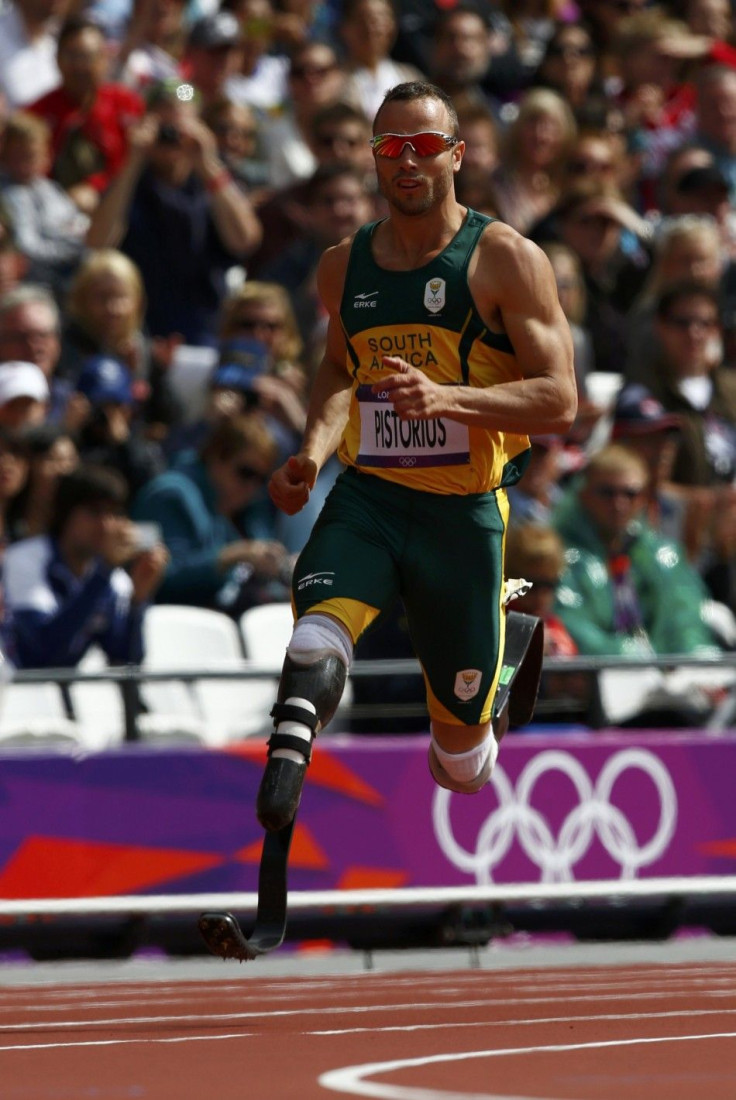Double-Amputee Sprinter Oscar Pistorius Qualifys For 400M Semifinals In London Games

Oscar Pistorius qualified for the 400-meter semifinals at the London 2012 Olympic Games Saturday, when he became the first double-amputee runner to compete in history of the Olympics. Hailing from South Africa and running on two prosthetic legs, Pistorius might be better known by his nicknames "Blade Runner" or "the fastest man on no legs."
Pistorius came in second in his qualifying race only to Luguelin Santos of the Dominican Republic. Pistorius ranked 16th among the 47 runners who participated in heats on Saturday, according to ABC News. The top 24 advanced to the semifinals Sunday. They will be followed by the finals Monday.
Pistorius' journey to the Olympics reads as if it was pulled from a film script. He had to have the sections of his legs beneath both knees amputated before he was even 1 year old. Then, when he was 16, a doctor advised him to begin running to recover from a rugby injury.
Subsequently, Pistorius competed in the Athens 2004 Paralympic Games, where he won a gold medal and a bronze medal, and in the Beijing 2008 Paralympic Games, where he won three golds.
On Saturday, Pistorius covered the 400-meter distance in 45.44 seconds, which might not challenge Michael Johnson's record of 43.18 seconds, but it is a very respectable time.
A columnist for the Associated Press reported the attention surrounding Pistorius on Saturday made it impossible for the event to be just another qualifying race. The Olympian was the natural target for television cameramen filming the event. And, in the end, "Pistorius showed how absurd it is to think of him as 'disabled,'" John Leicester wrote.
At 25, Pistorius reportedly had the crowd in awe, although his participation in the Olympics wasn't achieved as simply as it may seem in the inevitable movie.
Among other challenges, Pistorius' involvement in the games has had both doctors and lawyers questioning whether the prosthetic legs he wears provide not only a chance at competition on an equal footing, but an advantage unto themselves.
World-record holder Johnson told the Washington Post he wasn't so sure.
"My position is that because we don't know for sure whether he gets an advantage from the prosthetics that he wears, it is unfair to the able-bodied competitors," Johnson said.
Pistorius didn't seem bothered by the insinuation, though.
"If the blades give so much of an advantage, then why aren't other athletes who have them running as fast as me," Pistorius said. "People say I must have an advantage because my legs are lighter. But I've got less blood running through them and don't have the tendons in my ankles. People don't talk about that."
The Post noted that Pistorius' competitors said they had no problem with the prosthetics -- although, based on his performance Saturday, they might regret not complaining.
© Copyright IBTimes 2024. All rights reserved.











